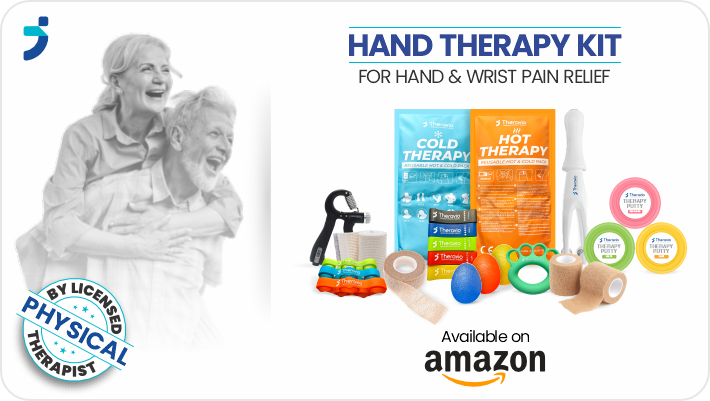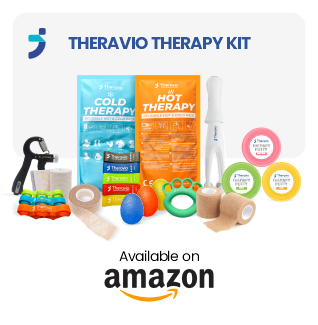Improving your quality of life is a multifaceted endeavor that encompasses various techniques aimed at enhancing physical, emotional, and mental well-being. At Theravio, we understand that every journey to better health is unique, and thus, the methods to achieve it can vary widely among individuals.

One effective way to improve quality of life is through the adoption of daily wellness practices. Consider integrating the following techniques into your routine:
- Mindfulness and Meditation: Engaging in mindfulness practices can significantly reduce stress and anxiety, promoting a sense of calm and clarity.
- Regular Physical Activity: Exercise not only boosts physical health but also releases endorphins, which enhance mood and energy levels.
- Healthy Eating: A balanced diet rich in nutrients fuels the body and mind, leading to improved overall health.
- Social Connections: Building and maintaining relationships can provide emotional support and a sense of belonging.
- Quality Sleep: Prioritizing sleep is crucial for recovery and maintaining cognitive function, impacting your daily life significantly.
Implementing these techniques can create a solid foundation for a healthier and happier life. To explore more about how innovative tools can facilitate your journey toward better health, visit us @ theravio.com for resources and supportive solutions.
You can also grab a Free E-Book titled “How To Cure Your Hand Or Wrist Pain In 30 Days.” In this book, I share detailed insights along with real-life examples that you can easily follow along with!
The Importance of Physical Activity for Well-Being
Physical activity plays a vital role in enhancing overall well-being and is a cornerstone of any effective health improvement strategy. Engaging in regular exercise not only strengthens the body but also significantly contributes to mental and emotional health.
Research shows that consistent physical activity can lead to the following benefits:
- Enhanced Mood: Exercise stimulates the release of endorphins, often referred to as 'feel-good' hormones, which can alleviate feelings of anxiety and depression.
- Improved Mobility and Flexibility: Engaging in activities like yoga or stretching can enhance flexibility and range of motion, making daily activities easier and reducing the risk of injury.
- Better Sleep Quality: Regular physical activity can help regulate sleep patterns, leading to more restful and rejuvenating sleep.
- Increased Energy Levels: Contrary to the belief that exercise drains energy, it can actually boost energy levels by improving cardiovascular health and endurance.
- Social Interaction: Participating in group activities or classes can foster social connections, enhancing feelings of belonging and community.
Incorporating physical activity into your daily routine is not only beneficial for maintaining a healthy weight but is also essential for emotional stability and cognitive function. As part of a holistic approach to quality of life improvement, it is crucial to find activities that you enjoy and can sustain over time.

How Proper Nutrition Enhances Life Quality
Nutrition is a fundamental aspect of our health and significantly influences our overall quality of life. The foods we consume not only provide the necessary energy for daily activities but also play a crucial role in maintaining mental clarity, emotional stability, and physical health.
Here are several ways proper nutrition can enhance life quality:
- Boosts Immune Function: A well-balanced diet rich in vitamins and minerals strengthens the immune system, helping the body fend off illnesses and infections.
- Promotes Healthy Weight Management: Consuming nutrient-dense foods rather than empty-calorie snacks supports weight regulation, reducing the risk of obesity-related diseases.
- Enhances Mood and Cognitive Function: Certain nutrients, such as omega-3 fatty acids found in fish, and antioxidants found in fruits and vegetables, are linked to improved mood and cognitive performance.
- Supports Digestive Health: A diet high in fiber from whole grains, fruits, and vegetables promotes healthy digestion and can prevent gastrointestinal issues.
- Increases Energy Levels: Eating a balanced diet ensures that the body receives the fuel it needs to sustain energy throughout the day, preventing fatigue and lethargy.
To truly *improve quality of life*, it is essential to adopt a holistic approach to nutrition. This may involve meal planning, mindful eating practices, and choosing whole, unprocessed foods whenever possible. By prioritizing nutrition, individuals can experience significant improvements in their physical health, emotional well-being, and overall vitality.
Mindfulness and Meditation for Daily Peace
In today's fast-paced world, the practice of mindfulness and meditation has emerged as a powerful tool for enhancing mental clarity and emotional well-being. These practices enable individuals to cultivate a deeper awareness of their thoughts and feelings, fostering a sense of inner peace and balance.
Here are some key benefits of incorporating mindfulness and meditation into daily routines:
- Reduces Stress: Mindfulness helps individuals recognize and manage stress triggers by promoting a non-judgmental awareness of the present moment, allowing for a more measured response to stressful situations.
- Improves Focus and Concentration: Regular meditation practice trains the mind to concentrate better, enhancing productivity and the ability to engage fully in tasks.
- Enhances Emotional Well-being: Practicing mindfulness can lead to improved emotional regulation, helping individuals respond to their feelings with greater awareness and less reactivity.
- Promotes Better Sleep: Mindfulness techniques, such as deep breathing and body scans, can help quiet the mind, making it easier to fall asleep and enjoy restorative rest.
- Encourages Self-Discovery: Meditation provides a space for self-reflection, allowing individuals to explore their thoughts and beliefs more deeply, fostering personal growth.
By integrating mindfulness and meditation into daily life, individuals can not only *improve quality of life* but also cultivate resilience and emotional strength. Simple practices, such as a few minutes of deep breathing or guided meditation each day, can create profound changes in mental health and overall well-being.
Building Strong Relationships to Boost Happiness
Human beings are inherently social creatures, and the connections we forge with others play a pivotal role in our overall happiness and quality of life. Building strong relationships can provide emotional support, enhance feelings of belonging, and ultimately contribute to greater life satisfaction.
Here are several ways to cultivate and strengthen relationships:
- Prioritize Communication: Open and honest communication is the cornerstone of any healthy relationship. Taking the time to express thoughts and feelings fosters understanding and trust.
- Invest Time: Nurturing relationships requires effort and time. Schedule regular catch-ups with friends and family, whether through calls, video chats, or in-person meetings.
- Practice Empathy: Understanding and sharing the feelings of others can deepen connections. Being empathetic helps individuals respond sensitively to the needs and emotions of those around them.
- Engage in Shared Activities: Participating in hobbies or interests together can strengthen bonds. Whether it's cooking, exercising, or volunteering, shared experiences create lasting memories.
- Show Appreciation: Regularly expressing gratitude and appreciation for loved ones can strengthen relationships. Small gestures, like a heartfelt note or a simple 'thank you,' can make a significant impact.
By focusing on these aspects of relationship-building, individuals can *improve quality of life* and cultivate a supportive network that enhances happiness. Strong relationships not only provide joy and fulfillment but also create a safety net during life's challenges, contributing to resilience and emotional well-being.
Creating a Balanced Routine for Lasting Improvement
Establishing a balanced routine is essential for achieving sustained improvement in your quality of life. A well-structured daily routine can enhance productivity, reduce stress, and promote overall well-being. By incorporating various elements into your routine, you can create a harmonious balance between work, self-care, and leisure.
Here are some effective strategies for creating a balanced routine:
- Set Clear Goals: Start by identifying your short-term and long-term goals. Clear objectives provide direction and motivation, making it easier to stay focused and organized.
- Incorporate Exercise: Physical activity is vital for both mental and physical health. Aim for at least 30 minutes of exercise most days of the week to boost your energy levels and improve mood.
- Schedule Downtime: Balance is key; make sure to allocate time for relaxation and leisure activities. Engaging in hobbies, spending time with loved ones, or simply unwinding can rejuvenate your mind and body.
- Prioritize Healthy Eating: Nutrition plays a critical role in your overall well-being. Plan balanced meals that include a variety of fruits, vegetables, lean proteins, and whole grains to support your health.
- Practice Mindfulness: Incorporate mindfulness practices such as meditation or deep-breathing exercises into your routine. These activities can help you manage stress and enhance mental clarity.
By embracing a well-rounded routine, you can significantly *improve quality of life* and foster a sense of stability and fulfillment. A balanced approach not only enhances productivity but also nurtures your physical, emotional, and mental health.
To discover more tools and resources that can help you create a balanced routine, visit us @ theravio.com.














































